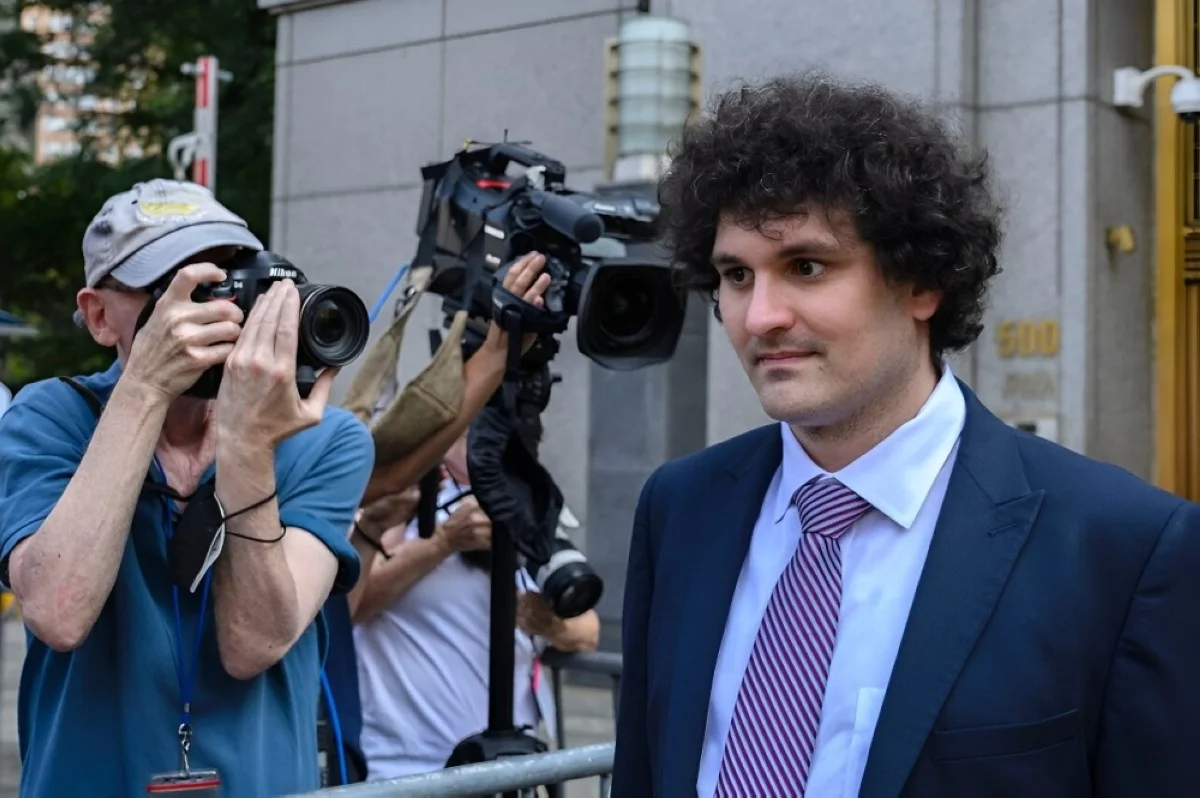NEW YORK: Disgraced cryptocurrency wunderkind Sam Bankman-Fried is set to be sentenced following his conviction in one of the biggest financial fraud cases in history. US prosecutors are seeking a prison term of 40-50 years after a New York jury found Bankman-Fried, known by his initials SBF, guilty in November following a five-week trial that probed the one-time high roller’s spectacular fall.
Calling Bankman-Fried’s seven-count conviction reflective of the defendant’s “unmatched greed and hubris,” the government’s sentencing request argues for significant jail time in light of fraud it estimates at more than $10 billion.
Moreover, a lengthy sentence is necessary to “protect the public,” argued US Attorney Damian Williams, who characterized Bankman-Fried as an “adept” spin doctor capable of additional malfeasance. If quickly freed, “it is realistic that he will settle on a narrative, lean into it, and convince other people to part with their money based on lies and the promise of false hope,” Williams said in a 113-page legal filing, accompanied by testimonials from dozens of victims.
Calling the government’s proposed sentence “barbaric,” Bankman-Fried’s attorneys depicted their client as a diligent young man motivated by philanthropy who got in over his head. Their portrayal is similar to the one SBF’s defense presented at trial — which was quickly rejected by jurors after just five hours of deliberation. Bankman-Fried, 32, should serve about six years in prison, a sentence “that returns Sam promptly to a productive role in society,” said attorneys led by Marc Mukasey.
The final sentence will be meted out by US District Judge Lewis Kaplan. Bankman-Fried will be given an opportunity to address the court prior to sentencing.
A graduate of the Massachusetts Institute of Technology and a billionaire before the age of 30, Bankman-Fried conquered the crypto world at breakneck speed, turning FTX, a small start-up he cofounded in 2019, into the world’s second largest exchange platform.
But in November 2022, the FTX empire imploded, unable to cope with massive withdrawal requests from customers panicked to learn that some of the funds stored at the company had been committed to risky operations at Bankman-Fried’s personal hedge fund, Alameda Research. During the trial, some of Bankman-Fried’s closest associates said that he was key to all the decisions that saw $8 billion vanish from FTX.
This group included Caroline Ellison, the former Alameda CEO and Bankman-Fried’s on-and-off-again girlfriend, who testified that Alameda had stolen “around $14 billion” from FTX clients and that Bankman-Fried “directed me to commit those crimes.” Filings from the prosecution and defense offered starkly different takes on Bankman-Fried, the son of two well regarded law professors at tony Stanford University.
“The lack of contrition is galling,” said Williams, who took issue with the image of Bankman-Fried as “selfless” and “altruistic,” as championed by the defense, noting he used funds for “luxury” real estate, donations to rub shoulders with political leaders, a Super Bowl television ad and “access to celebrities.” The defense’s statement describes Bankman-Fried as “wracked” with remorse over the implosion of FTX.
Bankman-Fried’s attorneys also pointed to statements from FTX’s current leaders expressing confidence that FTX customers and creditors would get back their money, saying in the brief, that “the harm to customers, lenders and investors is zero.” That argument drew a scathing response from FTX Trading Chief Executive John Ray, who said ongoing recoveries of ill-gotten gains do not make up for fraud.
“That things he stole... were successfully recovered through the efforts of a dedicated group” of professionals “does not mean the things were not stolen,” Ray said in a letter to the court. “What it means is that we got some of them back.” The recoveries are not likely to significantly affect the sentencing, said Jacob Frenkel, an attorney at Dickinson Wright who previously worked at the Department of Justice and the Securities and Exchange Commission.
“The sentencing determinant is not about a speculative return of funds,” Frenkel said. “It is about what was the fraud when he was convicted.” Frenkel said he would be “shocked” by a sentence under 20 years, in part because of the need for the judge to send a strong signal that fraud in the emerging cryptocurrency sector will be taken as seriously as any other. – AFP











